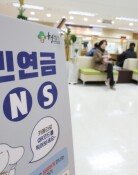Great Competition for Survival Among Newcomers
Great Competition for Survival Among Newcomers
Posted March. 26, 2003 22:18,
`Competition for survival is as hard as getting a job.`
New employees, with difficulties in getting jobs, are absorbed in yet other `interior competition for survival as soon as they have started to work.
Recently, most companies are inducing incentive systems based on personal abilities and achievements and annual salary systems.
It is a must for newcomers to drill their foreign language skills such as English speaking abilities, and they even go to `extra classes` to get special licenses or increase their working abilities during lunch hours, after work, and even in their days off.
Ms. Kim, Hye-youn 24, who joined a foreign bank this January, has a brief supper and goes directly to a private institution. She is trying to get her American International Certified Public Accountant (AICPA) license. She said, It is difficult to do work and study simultaneously, but I have no other choice to survive. She continues to go to class for 4 hours from 7 in the evening and go home at midnight every night.
Mr. Jung, Jae-won (26), who entered Good Morning (Shinhan Securities) last December, spent a million won and registered for an online class to get the U.S. Certified Fund Analyzer (CFA) license. He often logs on to this class not even after work but also during lunch hours.
Mr. Jung said, A third year employee was placed at the department he wanted after he got the CFA license, and since a license is a mean to prove one`s objective abilities, everyone seems to prepare for it.
Mr. Han, Suk-jung (32), who is operating an online retraining center for newcomers, said, Around 300 people had participated in the 1st class started last April, but regarding registration for the second class, it doubled to 600 people.
The Weekends is also an extension of work for them. A newly employed merchandiser (MD) at a home shopping company who was identified with Choi, his family name, went department stores every Sunday to analyze hot-selling items. He is now horning his skill to select items that will draw consumers` eyes even by working on Sunday without an extra payment for overtime.
Kim Hee-sung, who is newly employed worker at H construction company in Korea, said, Most of my colleagues wanted to work at construction sites where most workers are not able to take a day-off even on weekends. However, they are voluntarily apply for jobs at construction sites because they want to remain at this company for long. He also added, Newly recruited workers, who are working within Korea, are mostly working on Sundays from 8 am to 11 pm.
A personnel management official at the Kookmin Bank analyzed, Reasons why new employees are working very hard are that they are worried about their job security, so they wants to consolidate their positions within the company. Another key factor for such a trend is that there aren`t enough job offers to accommodate increased high school graduates.
Kim Ho-ki, sociology professor in Yonsei University said, With uncertainties in job security condition, workers are pressured by the burden that they have to improve their compatibilities in regardless of being paid or not. Korean company culture demanding workers for over-time work and personnel management practices fueling competition among workers has created workaholics mostly in their 20s.
The professor also said, As long as the neo liberalism is prevalent and unbalanced supply and demand in the labor market continues, the survival of the fittest trend in companies will inevitably remain unchanged.
Jin-Suk Huh jameshuh@donga.com



![[속보]박근혜 손잡고 울먹인 장동혁 “더 큰 싸움 위해 단식 중단”](https://dimg.donga.com/c/138/175/90/1/wps/NEWS/IMAGE/2026/01/22/133209040.3.jpg)



